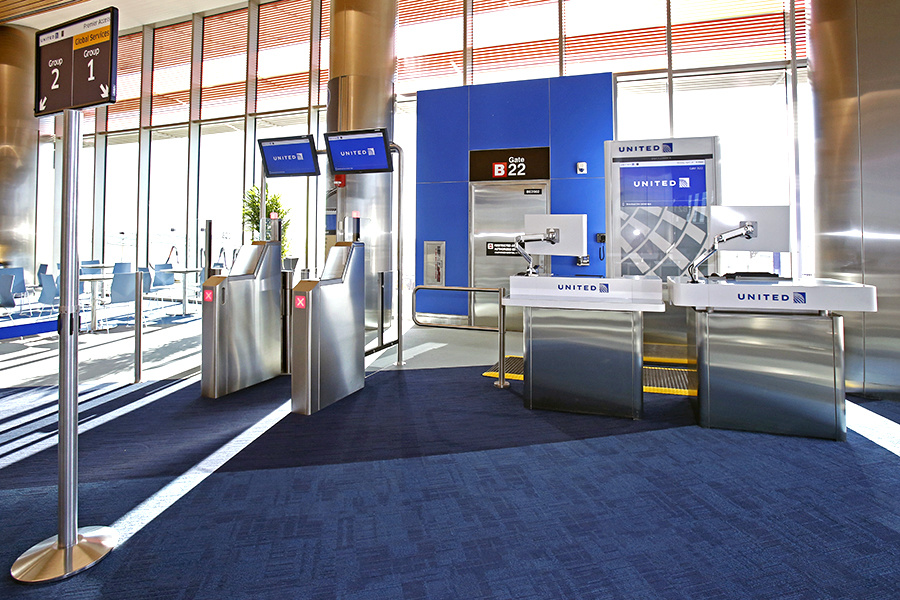
United Airlines will automate upgrades and standby seat allocations at the gate, freeing up gate agents and potentially eliminating charges of malfeasance for clearing upgrades out of order.
United calls its new system Standby Process Automation or SPA for short. In a note to employees shared with Live and Let's Fly which explains the new system, United said:
"SPA is an automation that clears upgrades, confirmed customers awaiting seat assignments and standbys without the need for CSR intervention, giving CSRs more time to provide caring service to our customers, and complete other critical pre-departure tasks - all while reducing touchpoints throughout the travel experience for both our employees and pass travelers."
CSRs are customer service representatives (gate agents).
The technology was due to be rolled out earlier this year, but was delayed due to the pandemic.
60 minutes before departure for international flights and 30 minutes for domestic flights, the following automated gate functions will begin, in this order:
Seat Solver, a peusdo-AI seat engine, will work to provide travelers with the best possible seat. The tool recognizes when you are traveling with a companion, knows your age (for exit row seating assignments), or if you have a split reservation.
Last month, the system soft-launched in Chicago (ORD) and Newark (EWR). This month, the new system is soft-launching in the following airports:
It will move systemwide by the end of the month. United says this system "creates a consistent process at all airports."
Overall, I think this is a positive step. Gate agents are often accused of shenanigans (upgrading friends first, deviating from the list) and this should eliminate or at least lessen that possibility. I tend to think these charges are usually unwarranted, but I've certainly seen situations over the years where they are. However, I've also been in standby and upgrade situations where a passenger's name is called and because s/he does not show up, I got the last seat or upgrade instead.
I suspect one downside may be that this system will clear people who may be on standby and checked in, but do not intend to travel...which may create offload concerns (and even more work) for some gate agents in the final moments before flight departure. You'd be surprised how often this happens for employees traveling on standby.
One other downside may be that with the system clearing all upgrades and standbys in one sweep and automatically assigning seats, the tradition of each passenger choosing their own new seat assignment will be eliminated. What if there are two aisle seats left, one in an exit row that does not recline and one a few rows back? Say the sweep clears the two passengers and the the passenger who was #1 on the list receives the exit row seat, since the AI determines it is the better seat. But what if that passenger would have preferred a seat that reclines? Too late now if the second standby passenger was already assigned it simultaneously. In the past, gate agents traditionally cleared seats one at a time, calling up the passengers and asking for their seat preference.
But in an age of concern over reducing touchpoint and human-to-human interaction, I'm interested to see how this system works in practice.
The job of a gate agent may soon get much easier...or may soon get harder depending upon a flight. But for customers, automatic upgrade clearances and seat assignments should add predictability to travel and create a more transparent upgrade and seat assignment process.